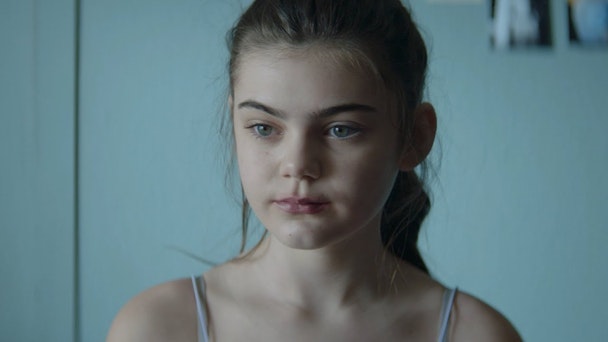Dove takes crusade against unrealistic beauty filters into TikTok
48% of girls who distort their photos regularly have lower body esteem compared to 28% of girls who don’t – Dove's latest campaign speaks to these girls on the platforms they use.

Dove's 'Reverse Selfie' campaign kicked off the conversation back in 2021
While social media filters can be a source of fun and self-expression, certain effects like the recently trending Bold Glamour, dramatically distort facial features and can reinforce unrealistic and harmful beauty standards – particularly for women and girls.
Taking a stand, beauty giant Dove is calling on its global community to turn its back on filters, inviting them to post a video turning their backs to the Bold Glamour filter and using the hashtags, #TurnYourBack #BoldGlamour #NoDigitalDistortion.
Advertisement
“Academic studies find that the use of filters and selfie editing is associated with low body confidence, mood, and self-esteem,” explains Dr Phillippa Diedrichs, research psychologist at the Centre of Appearance Research at the University of West England and body image expert.
“Research from Dove found that almost half of girls with lower body esteem feel they don’t look good enough without photo editing. Moreover, filters have become part of everyday life for 52% of girls, and 77% try to change or hide at least one part of their body before posting a photo of themselves. This suggests that the cumulative effect of filters and digital distortion over time is creating appearance pressures and low self-worth among girls and young women.”
The stunt, created in collaboration with agencies Ogilvy and David, forms part of the brand’s ongoing commitment to #NoDigitalDistortion in any of its advertising or marketing. Dove, Boots, and Barry M are among the brands to have pledged to help stop the digital altering of bodies and faces of influencers and models in social media campaigns, and campaigns such as the ‘Reverse Selfie’ ad and ‘Toxic Influence’ film all draw attention to the negative impact of social media on self-esteem.
“While social media filters can be a source of creativity and self-expression, Bold Glamour goes beyond ‘play.’ Tools once only available to professionals can now be accessed by young girls at the touch of a button and without regulation,” says Firdaous El Honsali, global vice-president, external communications at Dove. “At Dove, we are committed to #NoDigitalDistortion in any of our marketing and advertising so that we can support a more positive environment on social media that is representative of real, authentic beauty. When young people distort their images, they distort their minds too. We are calling on our community to join us to turn their backs on the toxic Bold Glamour filter and stand up for real beauty. Because real beauty is bold!”
@loumayyy Join me and @dove and fight these unrealistic beauty standards! #TurnYourBack on Bold Glamour! #NoDigitalDistortion #realbeautyisbold ♬ original sound - louise may
@milliemclay DON’T USE THIS FILTER, you are enough without it! Join me and @dove and #TurnYourBack on the #BoldGlamour filter #NoDigitalDistortion #AD #bodypositivity ♬ original sound - Millie Mclay
Through its wider Self-Esteem Project, Dove also offers academically validated and free tools to empower parents and caregivers to help children navigate social media in a positive way. Created in partnership with the Centre for Appearance Research, the Confidence Kit provides tips on how to make social media a healthier place for young people.

